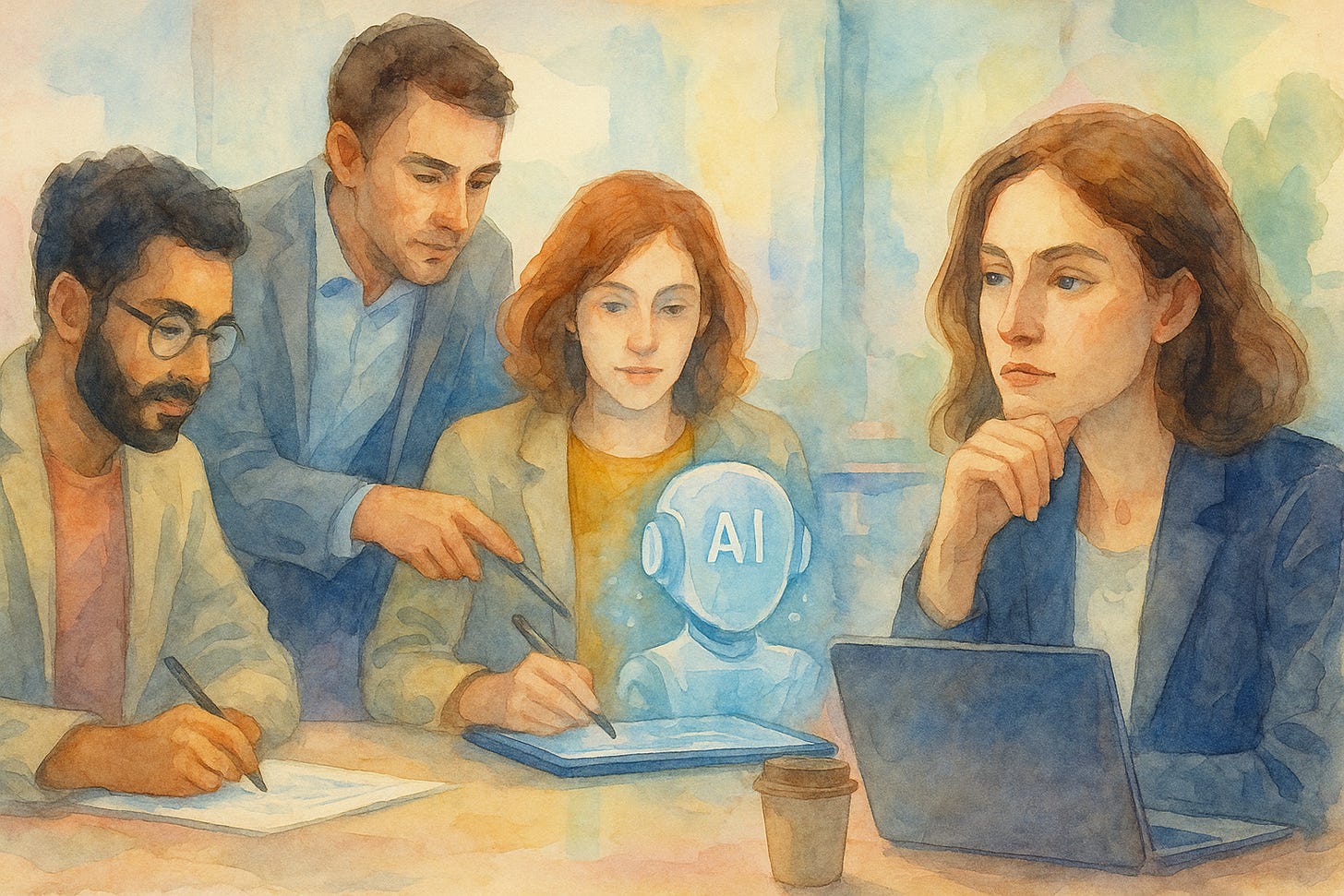How AI Is Reshaping the Future of Consulting
McKinsey, BCG, Deloitte and other major firms are embracing AI tools to boost efficiency, foster innovation, and redefine the consultant’s role in a rapidly changing industry.
Just a few years ago, a typical consulting room was filled with the sound of typing and quiet conversations. Today, at firms like McKinsey, BCG, and Deloitte, a new "invisible member" — artificial intelligence — actively participates in the work.
The generative AI boom is not just changing how these firms operate; it’s reshaping the very foundations of the consulting industry.
Thus, the real question is no longer whether AI will replace consultants. It’s this: how will the consultants of the future work, and how will AI become their most powerful ally?
From Document Review to Conversing with History: McKinsey’s Transformation
McKinsey & Company, one of the most influential consulting firms, has fully embraced AI at its core. Its flagship tool, Lilli, is a conversational agent that synthesizes over 100 years of proprietary knowledge, encompassing more than 100,000 documents and interviews.
With Lilli, consultants can ask questions, receive summaries, locate key content, and find internal experts. Over 70% of the company’s 45,000 employees use the tool regularly, consulting it about 17 times a week, and saving up to 30% of their time on routine tasks.
More than just speeding up work, Lilli is changing how teams think. As McKinsey senior partner Delphine Zurkiya puts it, "it almost feels like we have AI in the room with us." The ability to rapidly access deep insights is reshaping team dynamics and decision-making processes.
McKinsey had been investing in AI long before ChatGPT’s rise. Back in 2015, it acquired QuantumBlack, a data analytics and AI firm. Today, McKinsey partners with major tech players like Microsoft, Google, Anthropic, and Nvidia to deliver cutting-edge generative AI solutions for clients worldwide.
BCG: Using AI to "Increase Joy" at Work
Boston Consulting Group (BCG) has also embraced generative AI enthusiastically, but with a distinct philosophy: AI isn’t just about efficiency — it’s about enhancing workplace satisfaction.
In 2023, BCG rolled out ChatGPT Enterprise to its entire workforce, ensuring data privacy while encouraging innovation. Since then, the firm’s 33,000 employees have created over 18,000 custom GPTs for internal use, from summarizing documents to drafting automatic emails and answering HR-related questions.
One of BCG’s standout tools is Deckster, an assistant that refines and improves presentation decks using hundreds of internal templates. Its most popular feature, "review this," helps junior consultants optimize slides to meet senior management standards. About 40% of associates use Deckster weekly.
BCG has also developed GENE, a conversational chatbot with a deliberately robotic voice, constantly reminding users they’re interacting with a machine. GENE is used for brainstorming sessions, podcasts, and internal demos.
Although these tools have significantly boosted productivity, they have also sparked concerns among some employees about reduced demand for junior consultants. Still, BCG's official stance remains optimistic: AI is meant to free time for more valuable, creative work.
Deloitte: Caution and Controlled Deployment
Deloitte has taken a more cautious approach to generative AI adoption. To protect sensitive information, the firm has blocked internal access to ChatGPT and developed its own tool, Sidekick, for non-client tasks.
The company has invested billions in AI and created specialized agents like Zora AI, trained in areas such as finance, marketing, and operations. Deloitte has also enhanced its Ascend platform with generative AI capabilities.
Using AI inside Deloitte requires stringent security validation. Nevertheless, the firm’s leadership sees AI as a growth engine. As Jim Rowan, Deloitte’s head of AI, points out, AI is transforming every industry, opening new business models and growth opportunities.
KPMG and PwC: The Age of Coordinated AI Agents
KPMG and PwC are also redefining their AI strategies, especially focusing on building and coordinating networks of AI agents.
KPMG employs a dual strategy — "top-down and bottom-up" — to encourage innovation at every organizational level. Recently, the firm signed an agreement with Google Cloud to implement Agentspace, a platform designed to centralize AI agents and corporate data.
Meanwhile, PwC launched agentOS, a platform managing over 250 internal AI agents developed over the past 18 months. The goal is clear: move from isolated agents to a coordinated "armada" that multiplies collective impact.
A New Era for Consulting
The transformation these firms are undergoing is not just technological; it’s also cultural. After the post-pandemic challenges marked by layoffs and cost reductions, generative AI now stands as a beacon of growth and opportunity.
Matt Wood from PwC summarizes the moment clearly: "With more AI agents, organizations won’t get smaller — they’ll get bigger.". The goal of adopting AI isn’t merely about doing the same tasks faster. It’s about expanding capabilities, enhancing service quality, and redefining the consultant’s role in creating value for clients.

